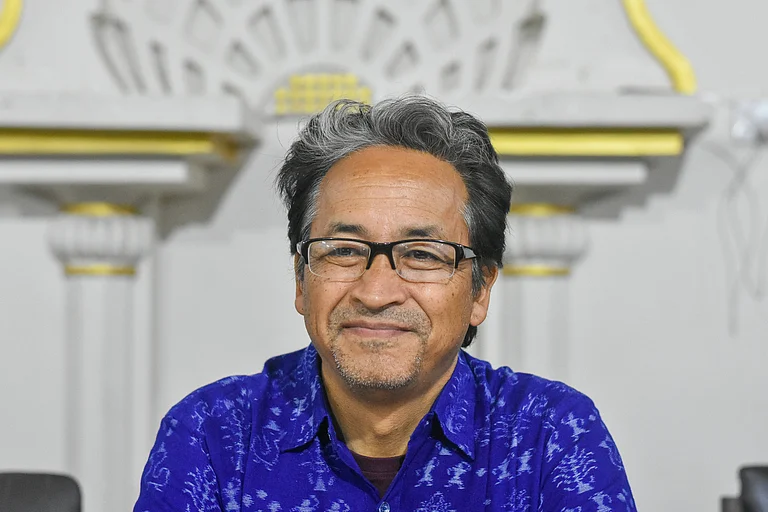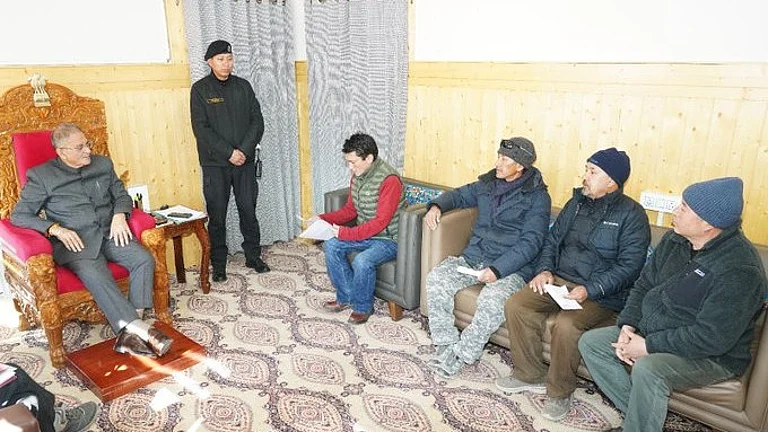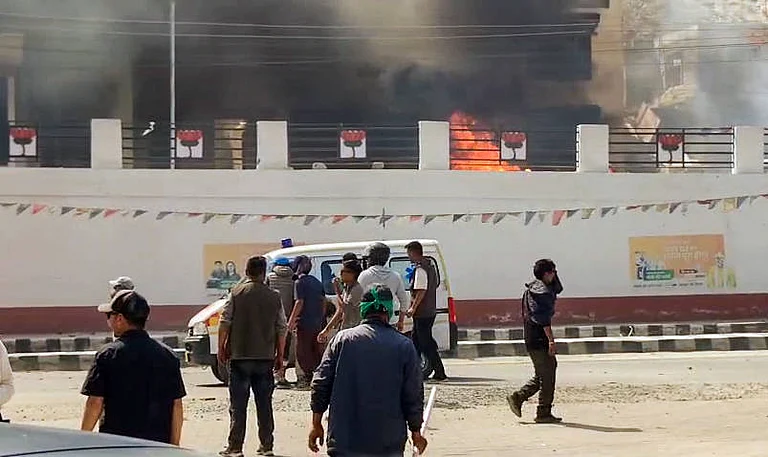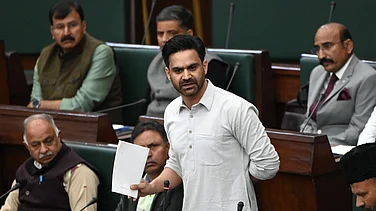“I am Sonam Wangchuk reaching out to the people of the world from Indian Himalayas, a place called Leh, Ladakh, at 3,500 metres, 11,500 feet,” said education reformist, climate activist and innovator Sonam Wangchuk addressing thousands who had gathered to voice for Ladakh’s rights and statehood.
Sonam Wangchuk announced that he would be going a ‘fast unto death’ on March 6, till Ladakh’s demands for the special status under Sixth Schedule was met. After repeated rounds of talks with the Centre, Wangchuk on the eve of PM Modi’s visit to the union territory announced his 21-day fast with growing concerns and the Government’s reluctance on acting on its 2019 electoral promise of ensuring Sixth Schedule for Ladakh . He has been a leading face in Ladakh’s demand for statehood, in advocating for the rights of the indigenous people in the Himalayan region and raising awareness about major climate issues the place has been grappling with, over the years.
After the Centre decided to scrap the special status of the erstwhile State of Jammu and Kashmir (J&K) under Article 370 of the Constitution, it was split into two Union Territories, J&K and Ladakh, on August 5, 2019. Over the last four years, the region has seen numerous protests, and according to Wangchuk, the ruling party not yet delivered on its 2019 poll promise of implementing the Sixth Schedule, securing employment through special provisions and safeguarding the local culture against the growing influence of industrial lobbies in the region. “This government claims Ram as their adarsh and Ram is all about maryada who never broke a promise. So we can hope this government will also not break the promises that they made to our people,” Wangchuk said in a speech.
Wangchuk and other locals have been protesting at the NDS stadium in Leh, where the temperature drops as low as -16 degrees Celsius at night. "I am sitting on a 21-day fast because this happens to be the longest duration Mahatma Gandhi fasted for during the freedom struggle. I want to follow the peaceful path of Mahatma Gandhi, where we inflict on ourselves and don’t take hostages. We take pain on ourselves so that the government and policymakers take notice and act in time," Wangchuk said.
Members of the Leh Apex Body (LAB) and the Kargil Democratic Alliance (KDA) had met with Union Minister Amit Shah with the demands of statehood, inclusion into the Sixth Schedule, and the institution of a public service commission to guarantee jobs for the locals, but the discussions failed to yield any positive results despite Shah assuring that the High Powered Committee (HPC) on Ladakh, constituted in 2023, had been discussing the modalities to provide such safeguards for the UT.
Last year, he went on hunger strikes in January and June, where he said he would continue with his hunger strikes until his demand for the Sixth Schedule to protect the fragile environment of Ladakh, its mountains, glaciers, land, people and culture is fulfilled. In an interview with Outlook Editor Chinki Sinha, Wangchuk had talked about why the Sixth Schedule is important, what has changed for Ladakh following the abrogation of Article 370 and the growing climate concerns in the region.
“The Sixth Schedule is a beautiful instrument which allows the government to give rights to local people to manage their region. But we need hill councils that have lawmaking rights. Right now, people who know nothing about Ladakh are sent here and given three years. In the case of fragile ecologies, locals should be given the autonomy to manage their region. In Ladakh's case, we are lucky to be 97 per cent tribal, so the Sixth Schedule is the best mechanism,” he had told Outlook.


























